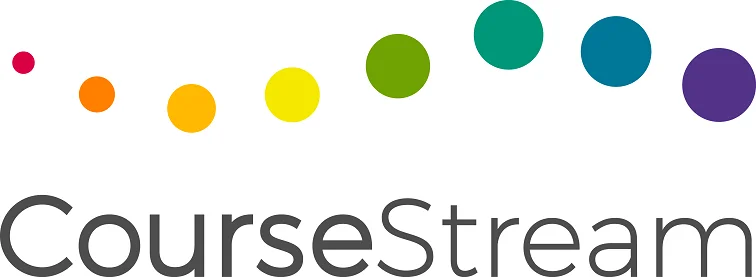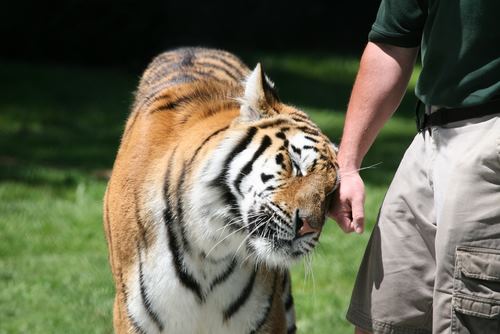Captive Animal Management (Zoo Keeping) Course Online
Do you love animals? Do you want a career related to animals? Do you want to learn how to manage animals in zoos? Then this online zoo keeping course is perfect for you! This course will teach you all the fundamentals in zoo keeping, such as how to ensure safety in a zoo, the food and nutritional requirements animals in zoos need, how to manage zoo breeding and reproduction, the techniques used to manage zoo animal interaction with humans, and more.
If you love wildlife and want to work with zoos this zoo keeping course is a great starting point.
When you study this zoo keeping course online you will learn about captive animal care, nutrition and welfare, animal enrichment, captive animal breeding, enclosure design, public education and more.
- Study how animals are cared for in zoos, and the way zoos are managed
- Learn animal handling and care; and appreciate the daily tasks that a zoo keeper is involved with
- 100 hour self paced study.
Who is this zoo keeping course for?
This zoo keeping course is highly recommended for anyone working with zoos as a volunteer or wanting to complete the Cert IV in Captive Animal Management but isn’t yet ready. We recommend that anyone wanting to work in a zoo starts with obtaining regular volunteer work.
What you will do in this zookeeper course:
- Describe the nature and scope of zoos as a source of education and conservation
- Develop appropriate procedures for managing occupational health and safety in a zoo, with a view to minimising risk to staff, animals and visitors
- Describe the nutritional requirements and feeding preferences of animals within zoos
- Determine health management measures required for a range of different captive zoo animals
- Describe the management of breeding in zoos
- Determine appropriate ways to manage a range of different wild animals in zoos
- Explain procedures and techniques used to manage human-animal interactions in zoos
- Identify and describe the qualities of good enclosure design. Develop maintenance programs for different enclosures
Course Outline
There are 9 lessons in this course:
- The Nature and Scope of Zoos
- What is a Zoo?
- The Evolution of Zoos
- Change in Zoo Design
- Modern Zoos and Sanctuaries
- Legislation
- Codes of Practices
- Animal Welfare
- Enrichment
- Record Keeping
- Identification Tags
- Animal Taxonomy
- Phylums & Classes of the Animal Kingdom
- The Function of Zoos
- Research and Zoos
- Education in Zoos
- Occupational Health and Safety in Zoos
- Workplace Health & Safety
- Legislation
- Health & Safety Management in Zoos
- Zoonoses
- Legionnaires Disease
- Other Safety Issues
- Risk Management
- Captive Husbandry – Nutrition and Feeding
- Animal Nutrition
- The Effect of Poor Nutrition on Animal Behaviour
- Water Requirements
- Essential Dietary Components
- Vitamins & Minerals
- Food Storage & Preparation
- Presentation of Food
- Captive Husbandry – Health
- Monitoring Health
- Maintaining Health
- Diseases
- Quarantine
- Record Keeping/Animal Transfer Data
- Enrichment Data Transfer Form
- Captive Husbandry – Reproduction
- The Need for Captive Breeding
- Captive Breeding in Zoos
- Goals of Captive Breeding
- Issues with Captive Breeding
- Inbreeding Risks
- Captive Breeding Programs
- Monitoring the Reproductive Status of Zoo Animals
- Assisted Reproduction
- Stud Books
- Birth Control and Separation
- Captive Husbandry – Behaviour and Enrichment
- Ethology
- Behaviour
- Types of Behaviour
- Behaviours in Captive Animals
- Learned Behaviour
- The Flight or Fight Response
- Animal Behaviours
- Animal Welfare Indicators
- Environmental Influence on Behaviour
- Behaviour Management
- Environmental Enrichment
- Human-Animal Interactions
- Keeper-Animal Interactions
- Visitor Animal Interactions
- Dealing with Dangerous Animals
- Flight Distance of Animals
- Handling Animals
- Visitor Animal Interactions
- Stress Reduction
- Enclosure Design and Maintenance
- Optimum Enclosure Design
- The Perfect Enclosure?
- Replicating Nature
- Providing Stimulating Environments
- Physical Enrichment
- Feeding Enrichment
- Sensory Enrichment
- Social Enrichment
- Problem-based Learning Project – Environmental Enrichment
- Introduction and Definition of PBL
- Problem Definition
- Team Structure and Interaction
- Discussion
- Resources
- Guidelines
- Final Report
Enrol Now
- Experienced Tutor support
- Certificate sent to you
- Online study (Printed notes available)
- Self paced - no set timetable
- 12 months to complete course
From: $35.00 / week for 19 weeks
Get a Free Info Pack!











